Text
the way roman political alliances worked was less like a party system and more like messy polycule drama. this is what we must understand
92 notes
·
View notes
Text
somebody remind me to make a meme clarifying this
every time the certified Crassus Eel Post circulates on my dashboard i become filled with rage at all the people in the replies who think Eel Crassus is the same guy as Marcus Licinius Crassus. it's such a disservice to Eel Crassus. he was his own person. his own sick little eel loving freakish person. you think marcus crassus is the kind of guy capable of loving an eel? you think he contains the emotional depth for that? no. he's too busy burning peoples' houses down
359 notes
·
View notes
Text

809 notes
·
View notes
Text
no disrespect to Micky Mantle, hula hoops, Wheel of Fortune, Chubby Checker, Doris Day, or Ben Hur, but none of these people or things are evidence in support of the hypothesis that “[the fire] was always burning, since the world's been turning”
au where the lyrics of “We Didn’t Start The Fire” exclusively reference persons and events of historical significance
181 notes
·
View notes
Text
au where the lyrics of “We Didn’t Start The Fire” exclusively reference persons and events of historical significance
181 notes
·
View notes
Note
Hello! Huge love to your literature and shows reviews. Saw that a lot of people here ask you away so decided to bother you with kinda specific question.
What was the REAL roman attitude to incest? Like they did love dirty gossips, plus incest accusations were the perfect way to disgrace someone (bonus if in public!) but was it considered crime? Disgusting? Or in fact was pretty common?
Hi there! I'm no historian, just a rando who's pretty good at tracking down books. I've gotten things wrong on this blog before. 😉 That said, I do enjoy trying to hunt down obscure topics like this, so let's see what I could find...
Most Romans thought of incest as immoral and illegal. It was a common slur to throw at your political opponents, even without evidence. A father might be accused of it just because he was affectionate and interested in his daughter's studies instead of being distant (as happened to Cicero), or a young man might be accused of sleeping with an older relative to advance his career (as Mark Antony said of Octavian, with Julius Caesar). These are almost certainly not true.
The most notorious allegation in republican times would probably be Clodius Pulcher and one (or two?) of his sisters, but even there, we don't know what really happened. I'm afraid most of the other infamous ones, like Caligula and Nero, are similarly uncertain. Our sources contain a lot of rumor, insults and exaggerations.
Plus, what counts as incest? It was legally and socially acceptable for Brutus to marry his first cousin, Porcia. All of Rome's old aristocratic families had intermarried repeatedly, too. And in some eastern parts of the empire, marriage between siblings and half-siblings happened sometimes. (1)
During the imperial period, first cousins and more distant relatives could marry. Specifically, you had to be at least four degrees of consanguinity apart. (2) That means none of the people in pink here:
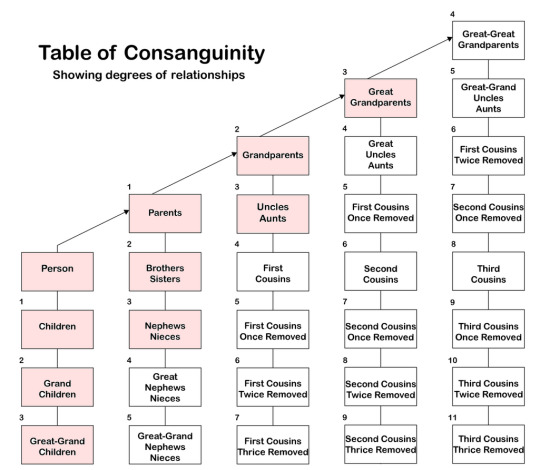
This probably also held true for late republican times, since we know that sibling and parent-child incest were forbidden. The penalty, if one was convicted of incest, was death. (3) But I couldn't find specific examples of that actually being carried out, and it's likely that in practice the paterfamilias acted as a judge in most cases within the family.
We know little of what happened to the children of such relationships in republican times. Presumably they were legally considered illegitimate; this was certainly true by 170 CE, our oldest clear reference to them in Roman law. Like other illegitimate children, they couldn't inherit through the biological father unless he explicitly named them in his will, but they could inherit normally through the mother's side. The legal expert Papianus explicitly stated that children born of incest had committed no crime, and should not be stigmatized or barred from public life. This view seems to have remained law up till the time of Justinian. (3)
That said, sometimes Romans abandoned infants to exposure. They may have also done this for infants born of incest, or they may have invented "respectable" explanations, as many modern families have done. But I didn't find any specific examples.
The emperor could grant special privileges, such as when Claudius married his niece Agrippina the Younger. There's also the touching case of Flavia Tertulla, whose story is preserved in a letter from the court of emperors Marcus Aurelius and Verus:
We are touched by the long period of time in which, ignorant of the law as you were, you led a marital life with your maternal uncle, by the fact that you were pushed into marriage by your grandmother and by the number of children you have had. This is why, considering that all the above circumstances go in the same direction, We confirm the legal status of your children, born to a marriage dating back over forty years, just as if they had been conceived in conformity with the law.
Tertulla had taken a risk by confessing the truth. She had probably been a young teenager when she was married off, and now was a widow in her fifties. This response was not a confirmation of the marriage's validity (and she wasn't asking for that anyway), but she was excused of any crime, and her children were allowed to inherit their father's name and status and lead normal lives. (3)
I really like this example because it reminds us that these were real people affected, who might have gone through a lot of grief or trauma, or who learned the truth in the worst way possible. We don't know how Tertulla felt about her uncle or grandmother. But we know she was a survivor who found the courage to come forward and ask for help. And she and her kids got to move forward with their lives and dignity.
(1) Judith Evans Grubbs, "Promoting Pietas through Roman Law," in A Companion to Families in the Greek and Roman Worlds, ed. Beryl Rawson, 2011.
(2) Patrick MacChombaich de Colquhoun, A Summary of the Roman Civil Law, 1849, p. 513
(3) Philippe Moreau, “Rome’s invisible children of incest,” in , Children, Memory and Family Identity in Roman Culture, eds. Dasen, V. and Späth, T., 2010.
45 notes
·
View notes
Text
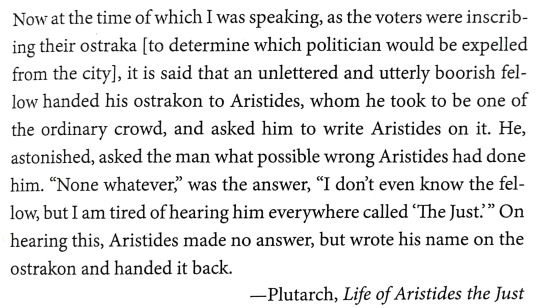
This rocks. Hater is the oldest profession
625 notes
·
View notes
Text
also for everyone asking where the daggers option is. i know the ides of march are a big thing on tumblr but i need you to know theres an entire republic of fucked up little senatorial assholes out there and caesar is honestly not the most exciting. hes not the sluttiest. hes not the baldest. hes not the war criminaliest or even the most interestingly assassinated. hes not the cuntiest in the first triumvirate let alone in the whole republic. there are so many to choose from. be free.
400 notes
·
View notes
Text
Modern AU but Agrippa stumbles onto Octavian just finishing murdering someone. He’s horrified but he helps hides the body when Octavian asks him to.
67 notes
·
View notes
Text
side note: does any name have more disambiguation pages on Wikipedia than Caesar?
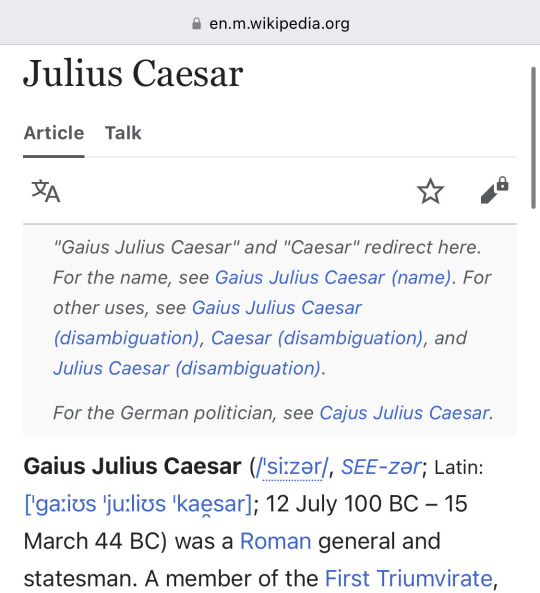
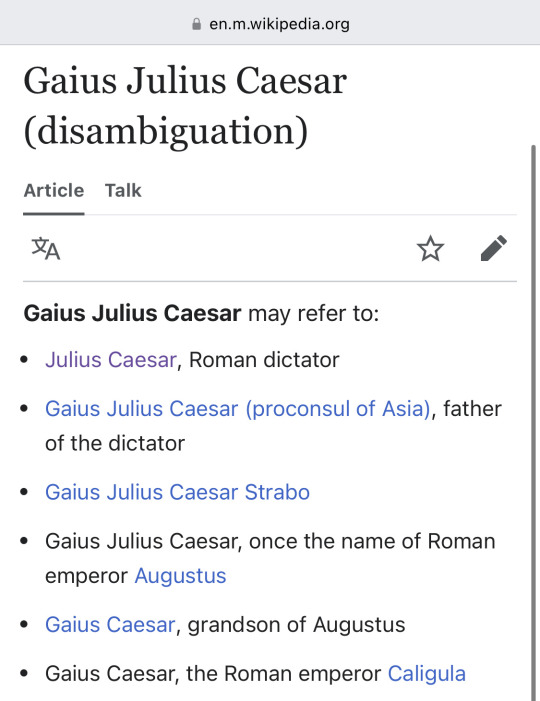
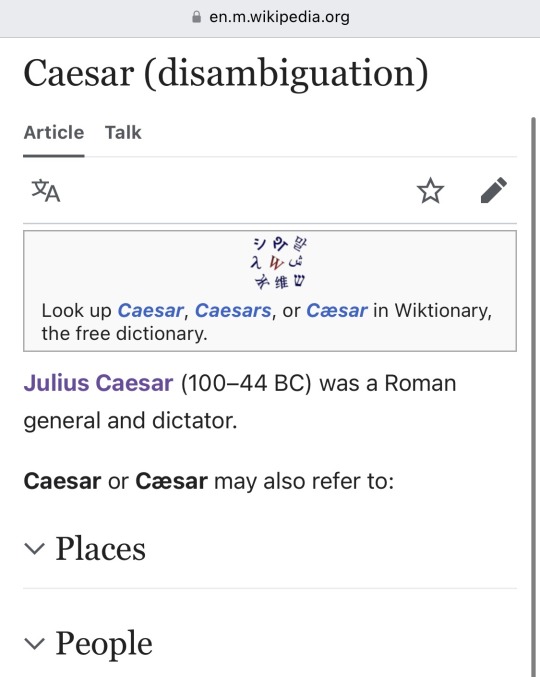
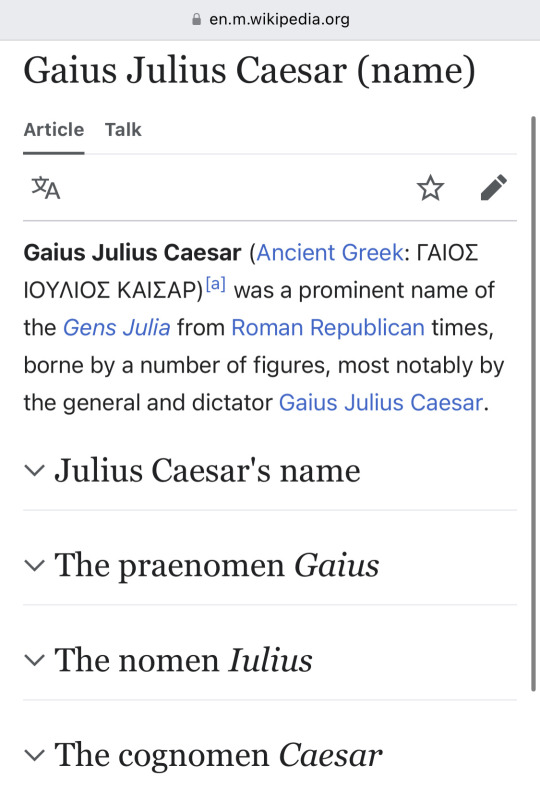



"When in Rome" 3.16 XENA: WARRIOR PRINCESS
3K notes
·
View notes
Text
i mean other people also took the name Caesar. that was a pretty common thing that happened. like i understand where Xena is coming from here but very many people adopted the name Caesar.



"When in Rome" 3.16 XENA: WARRIOR PRINCESS
3K notes
·
View notes
Text

Honestly, not bad for one of humanity’s very first board games. But it’s hard to judge when we’re not totally certain about the finer details of the rules. Worth playing at least twice for the novelty (once to grok the rules, twice to engage with the strategy of the game).

Wood and faience game board with pieces, Egypt, 18th Dynasty, circa 1550-1295 BC
from The Metropolitan Museum of Art
508 notes
·
View notes
Text

Happy April Fools Day
11K notes
·
View notes
Text
Roman soldier who just realized they didn't crucify Jesus long enough: "Oh shit I guess he uhhhhhh RESURRECTED"
75 notes
·
View notes
Text
guys Jesus did not have stigmata 😭 stigmata means that you manifested the wounds through spiritual/supernatural means. Jesus had holes in his hands and feet because they put nails in them.
25K notes
·
View notes
Text
this post was fact-checked by real Roman patriots: ✔️TRUE
christmas is when jesus was born, and easter is when he died. in between is when he did various baby crimes bad enough to warrant capital punishment at 3 months old. very bad baby
105K notes
·
View notes